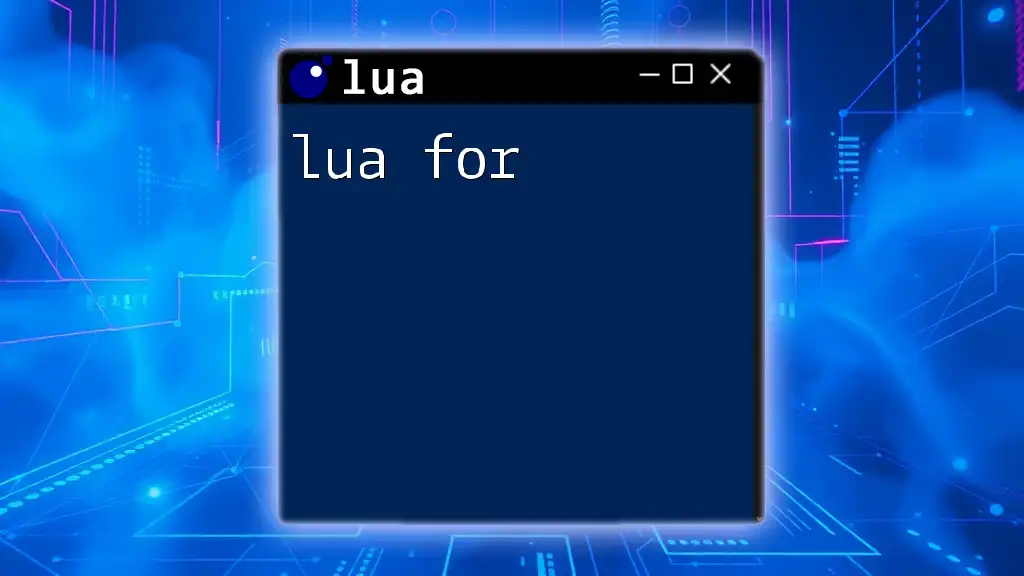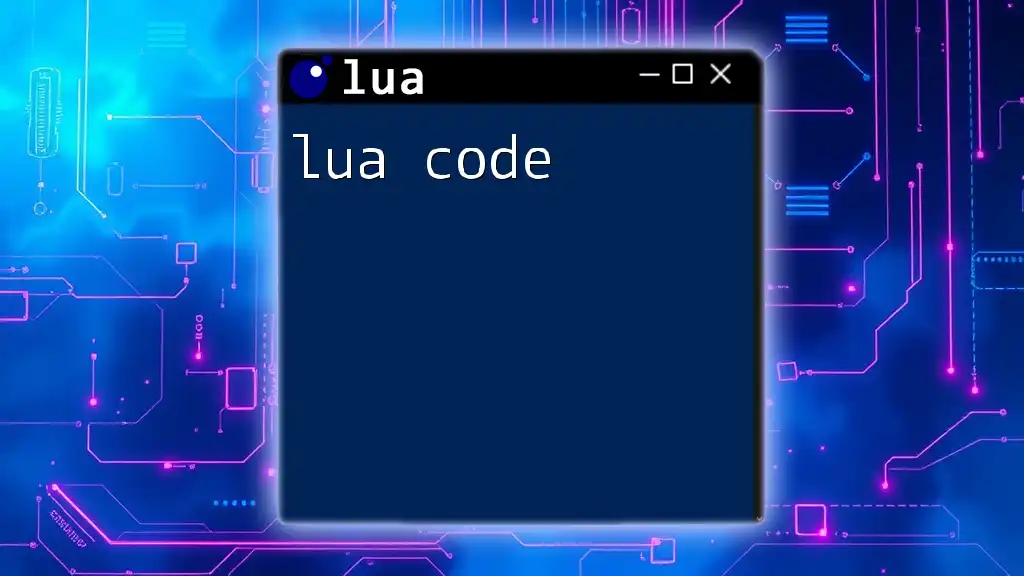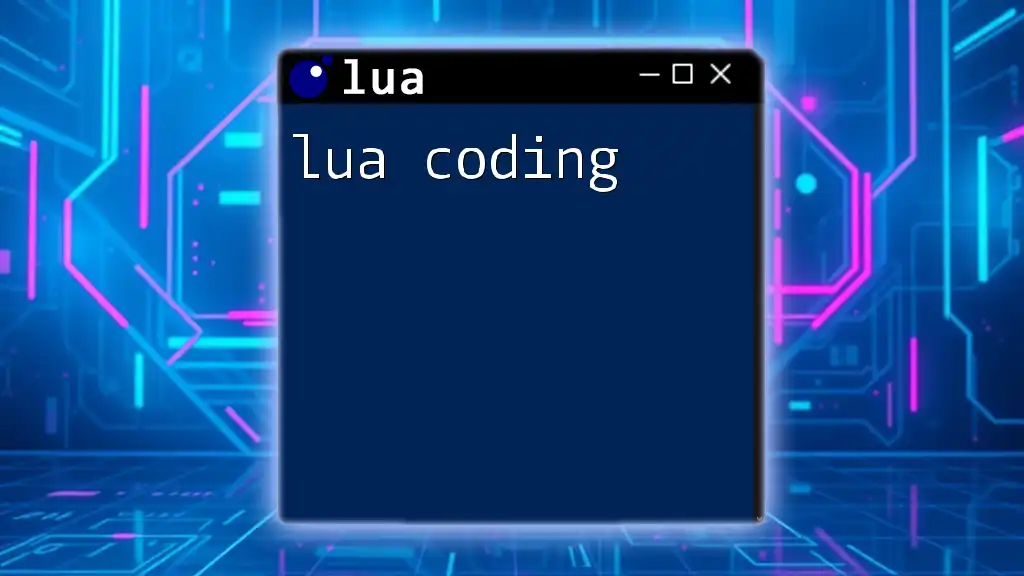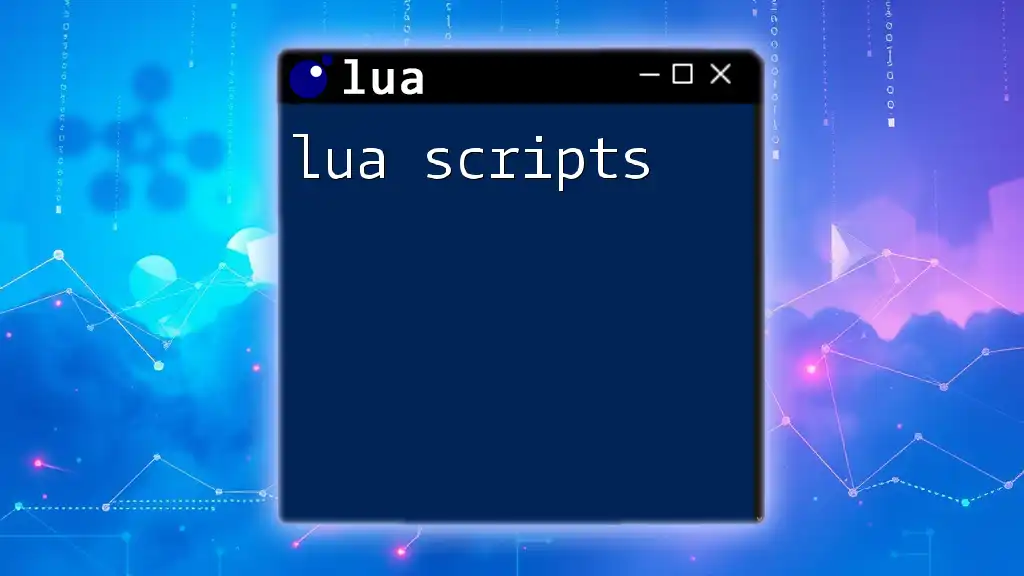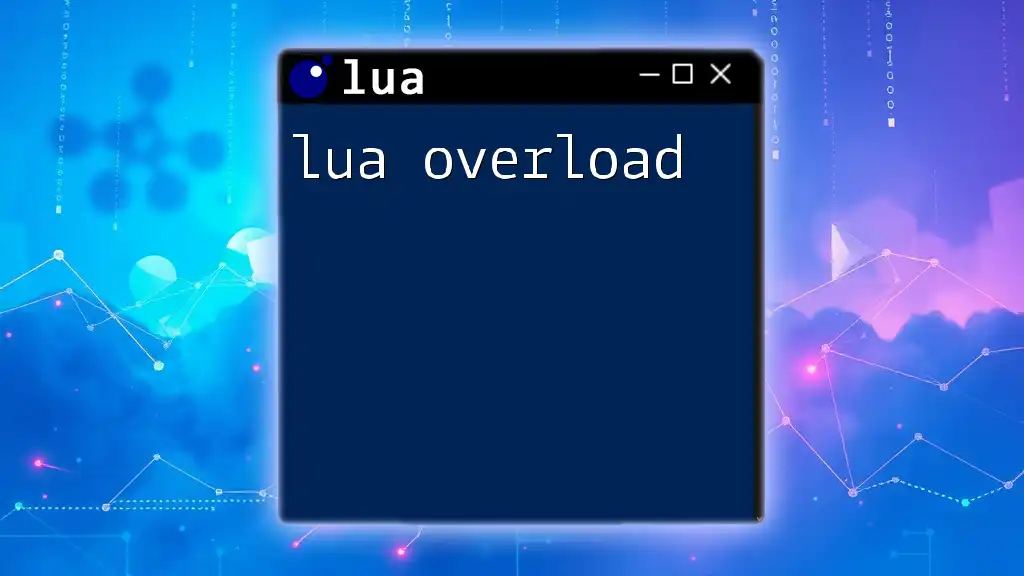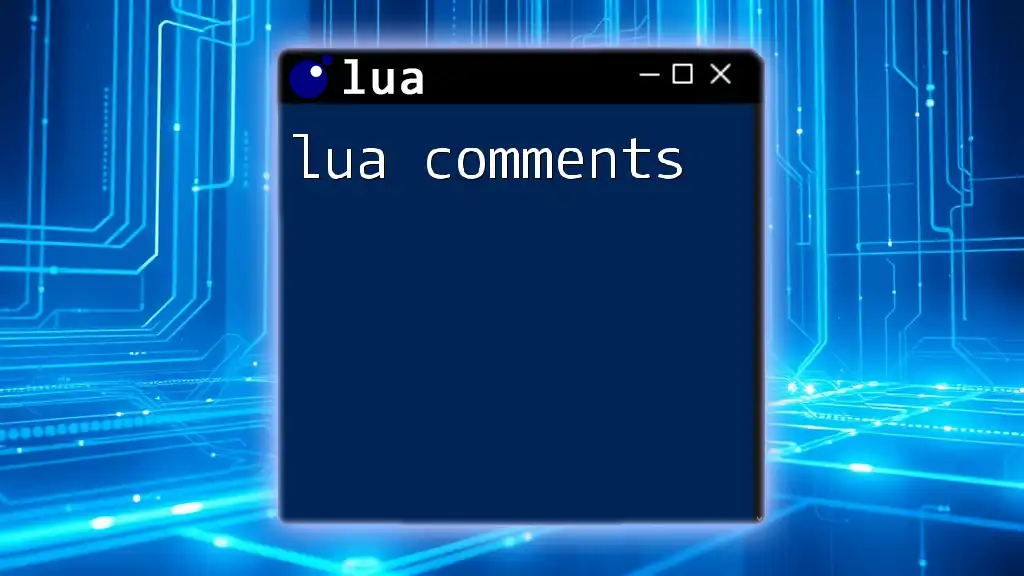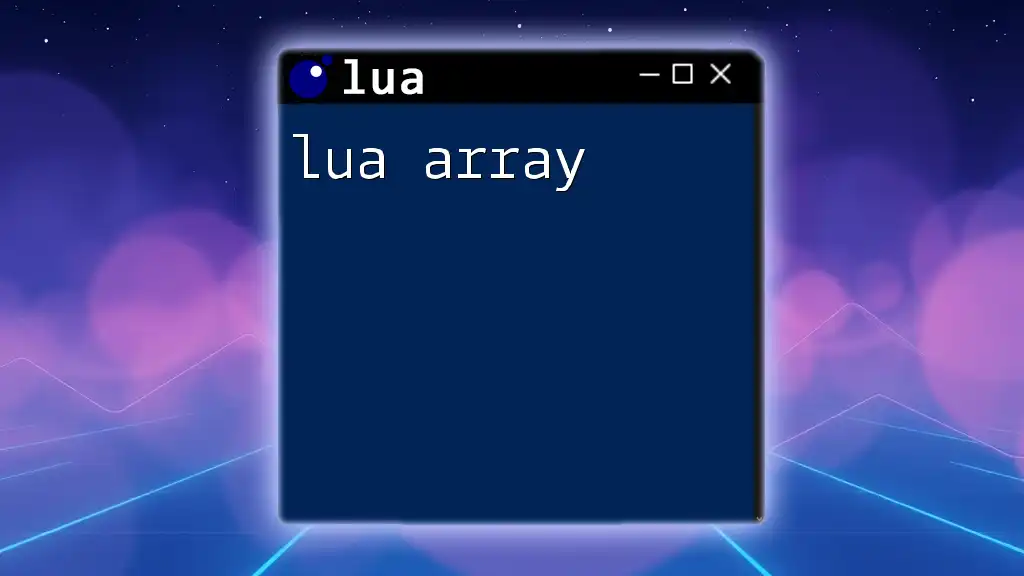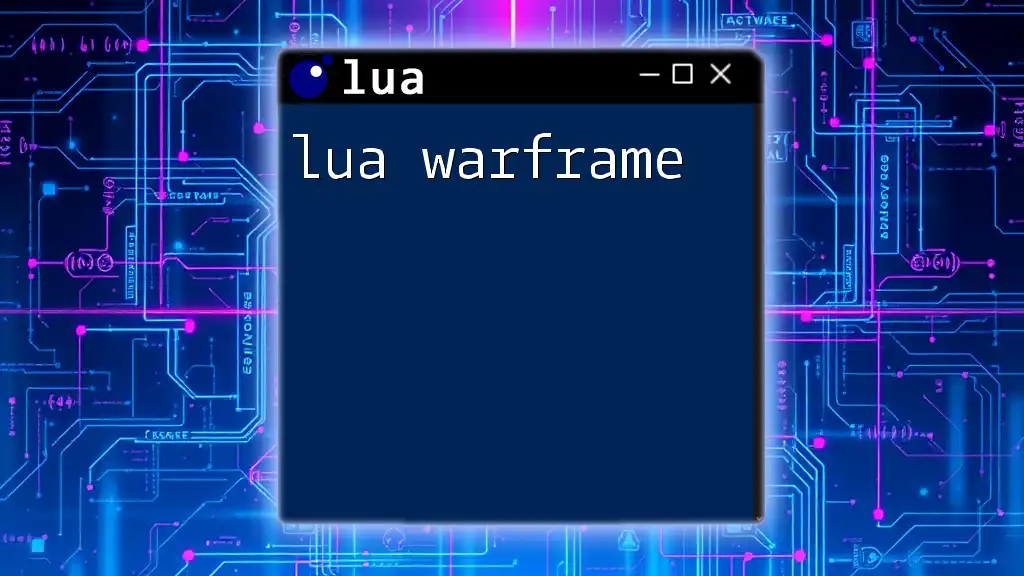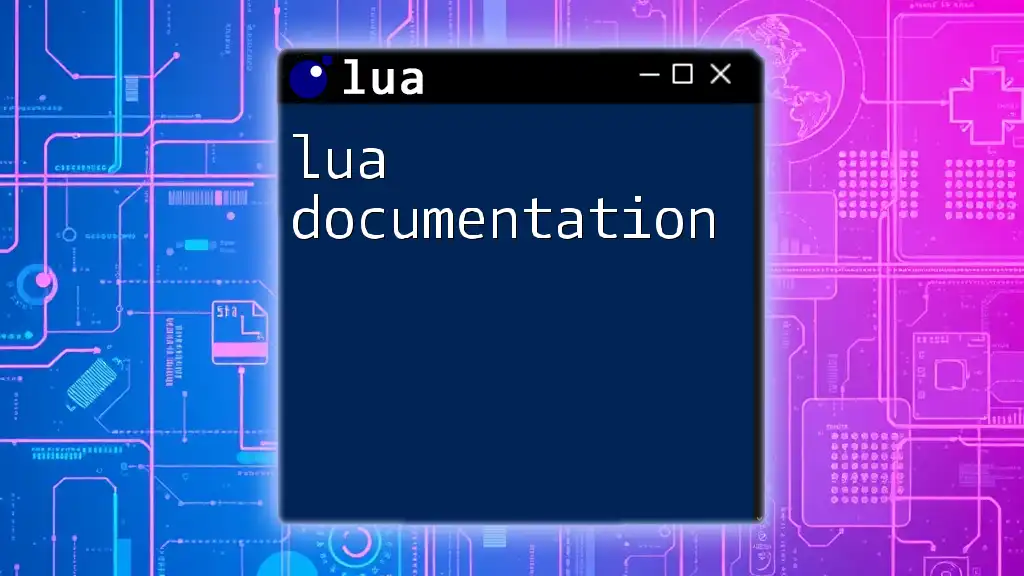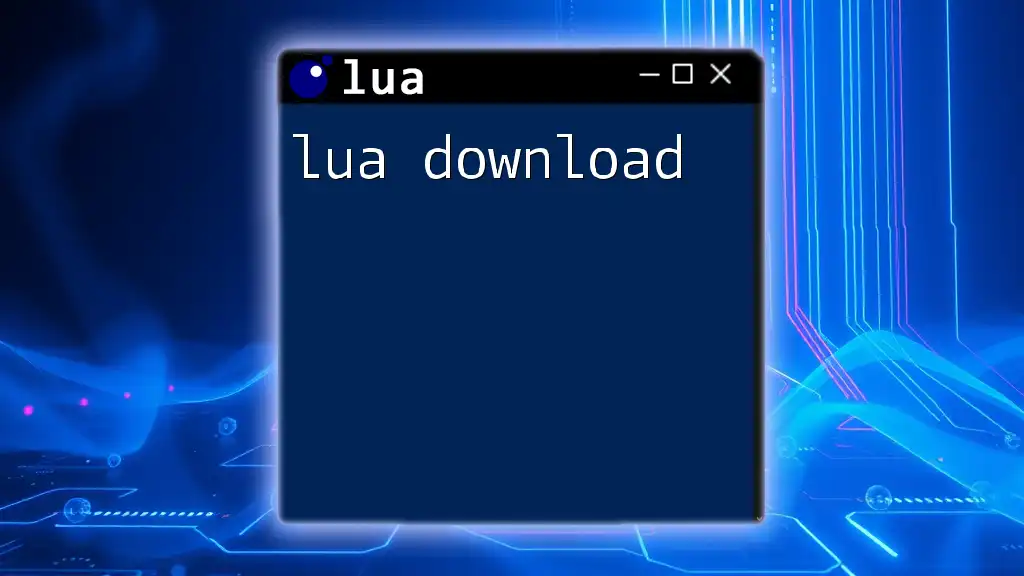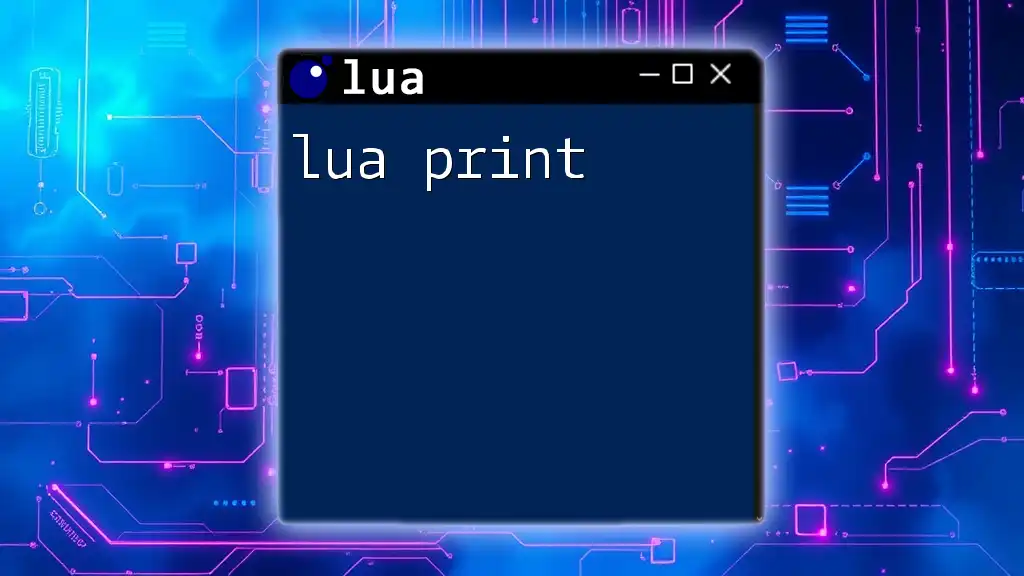"Lua for" refers to a control structure used in the Lua programming language that allows you to iterate over a table or a range of numbers efficiently.
Here’s a simple example of using a "for" loop to iterate through numbers from 1 to 5:
for i = 1, 5 do
print(i)
end
What is Lua?
Lua is a lightweight programming language that is powerful, efficient, and easy to learn. Originally developed in 1993, Lua has become a popular choice for embedded systems, game development, and applications requiring scripting capabilities. Its design emphasizes flexibility and ease of use, making it ideal for those who are new to programming.
Features of Lua
Lua boasts several attractive features:
- Simplicity and Ease of Learning: Lua's syntax is clean and straightforward. This feature makes it accessible to beginners who can grasp fundamental concepts quickly.
- Speed and Efficiency: Known for its fast execution, Lua performs well even in resource-constrained environments.
- Extensibility and Integration: Lua can be seamlessly integrated with other programming languages like C, allowing developers to enhance their applications by leveraging the strengths of multiple languages.
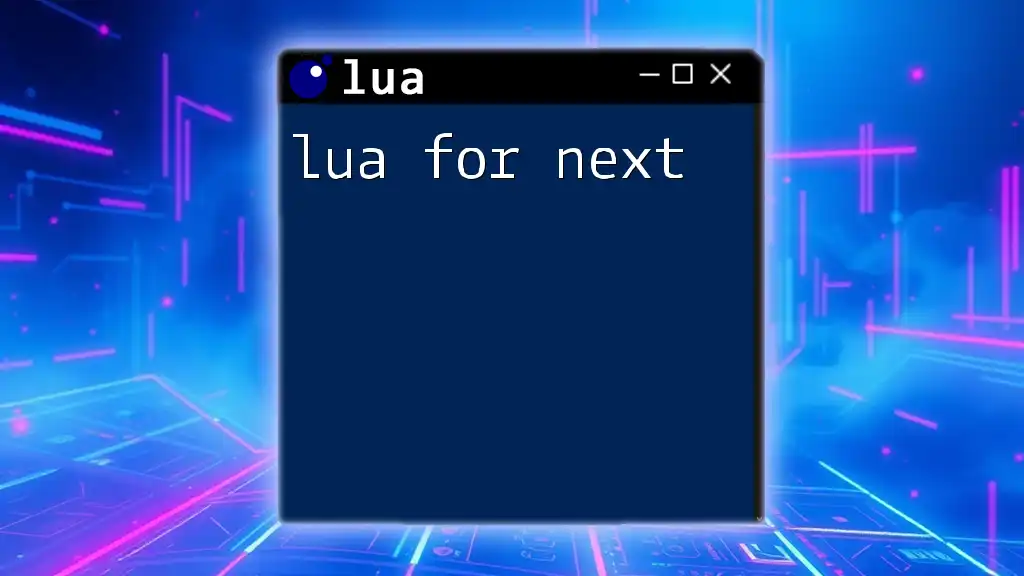
Setting Up Your Lua Environment
Installing Lua
Setting up your Lua environment is the first step towards mastering the language. Follow these steps to install Lua on various platforms:
- Windows: Download the LuaBinaries and follow the installation instructions provided in the README file. Ensure that the path to the Lua executable is added to your system environment variables.
- macOS: You can install Lua using Homebrew with the following command:
brew install lua - Linux: Most distributions support Lua installation through a package manager. For instance, on Ubuntu, you would use:
sudo apt-get install lua5.3
Choosing an IDE or Text Editor
Selecting the right Integrated Development Environment (IDE) or text editor can enhance your Lua programming experience significantly. Some popular options include:
- ZeroBrane Studio: A lightweight IDE specifically designed for Lua that includes debugging and profiling tools.
- Visual Studio Code: A versatile editor with extensions for Lua development, allowing for customizable features like syntax highlighting, IntelliSense, and debugging capabilities.
In choosing an IDE, look for features that support code completion, integrated debugging, and easy navigation to streamline your coding workflow.
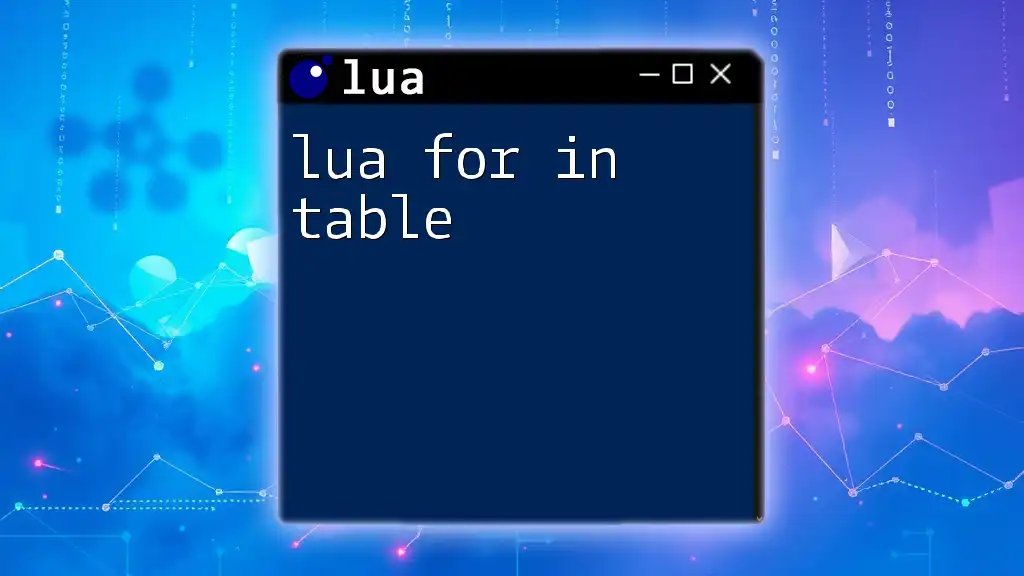
Basic Lua Syntax
Understanding the basic syntax is crucial to using Lua effectively.
Data Types
Lua has several built-in data types:
- Numbers: Lua supports both integer and floating-point numbers.
local integer = 42 local float = 3.14 - Strings: Strings in Lua can be defined using single or double quotes.
local greeting = "Hello, Lua!" - Booleans: The two boolean values are `true` and `false`.
local isLuaFun = true - Tables: Tables are the cornerstone of Lua’s data management, acting as both arrays and dictionaries.
Variables
Variables in Lua are declared simply by assignment without needing to declare a type. The scope of a variable (global or local) depends on how it is declared. For example:
local myLocalVariable = 10 -- Local variable
myGlobalVariable = 20 -- Global variable
Comments
Comments are essential for documenting your code. Lua supports single-line and multi-line comments:
-- This is a single-line comment
--[[
This is a
multi-line comment
]]
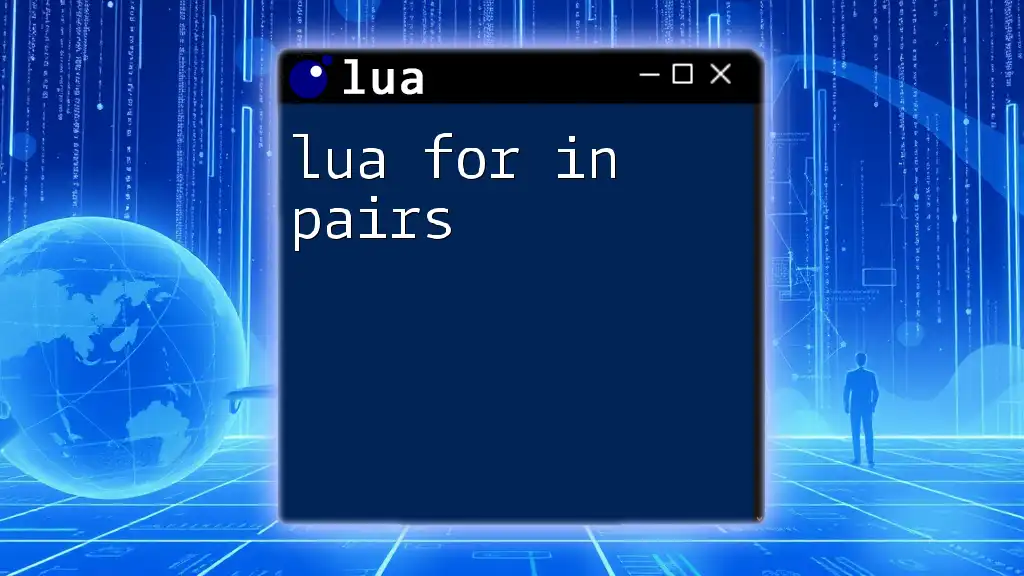
Control Structures
To control the flow of your programs, you'll use various structures.
Conditional Statements
The `if-then-else` statement allows you to execute code based on conditions:
local age = 18
if age >= 18 then
print("You are an adult.")
else
print("You are a minor.")
end
Loops
Loops are critical for repeated execution of code blocks.
For Loop
for i = 1, 5 do
print("Iteration: " .. i)
end
While Loop
local count = 0
while count < 5 do
print("Count: " .. count)
count = count + 1
end
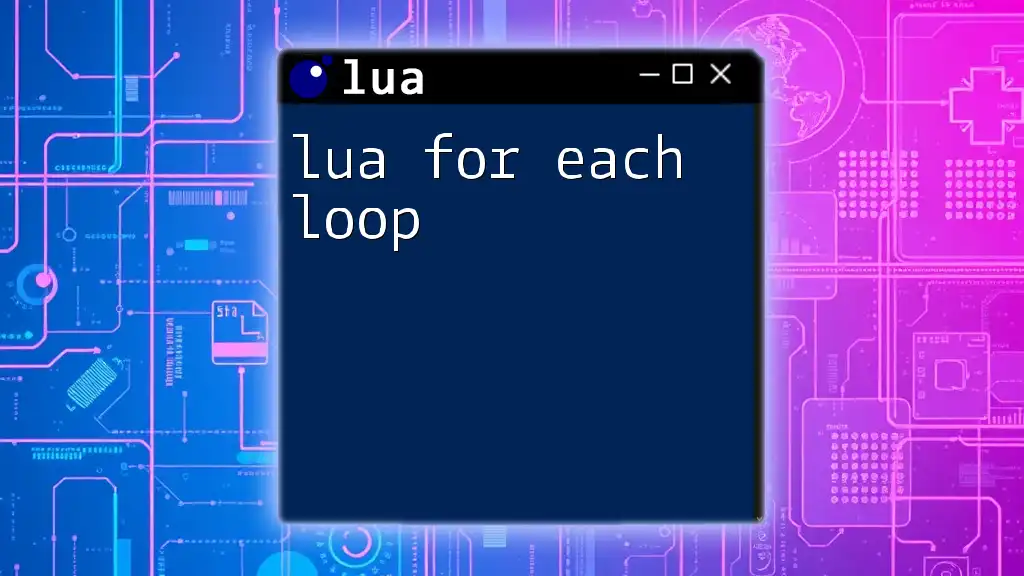
Functions in Lua
Functions allow for modularity in your code, and understanding how to define and call them is vital.
Defining and Calling Functions
In Lua, functions can be defined using the `function` keyword. Here’s a simple function that adds two numbers:
function add(a, b)
return a + b
end
local sum = add(5, 7)
print("Sum: " .. sum)
Scope in Functions
In Lua, variables declared within a function are local to that function. Understanding the difference between local and global variables is crucial, as they help control the accessibility of your variables.
function testScope()
local localVar = "I'm local"
globalVar = "I'm global"
end
testScope()
print(globalVar) -- This will print "I'm global"
-- print(localVar) -- This will raise an error since localVar is not accessible here
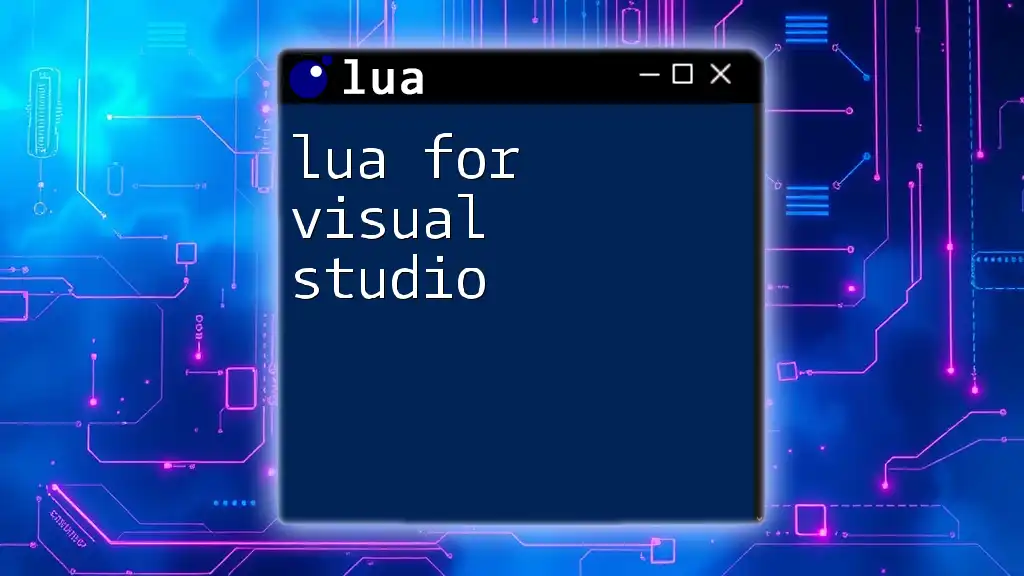
Tables: The Cornerstone of Lua
Tables in Lua are versatile data structures used for various tasks.
What are Tables?
Tables can be thought of as arrays, dictionaries, or even objects. They offer a simple way to manage collections of data.
Creating and Using Tables
You can create and manipulate tables easily:
local fruits = {"apple", "banana", "cherry"}
print(fruits[1]) -- Outputs: apple
local person = {
name = "John",
age = 30
}
print(person.name) -- Outputs: John
Accessing and modifying the contents of tables is straightforward and efficient.
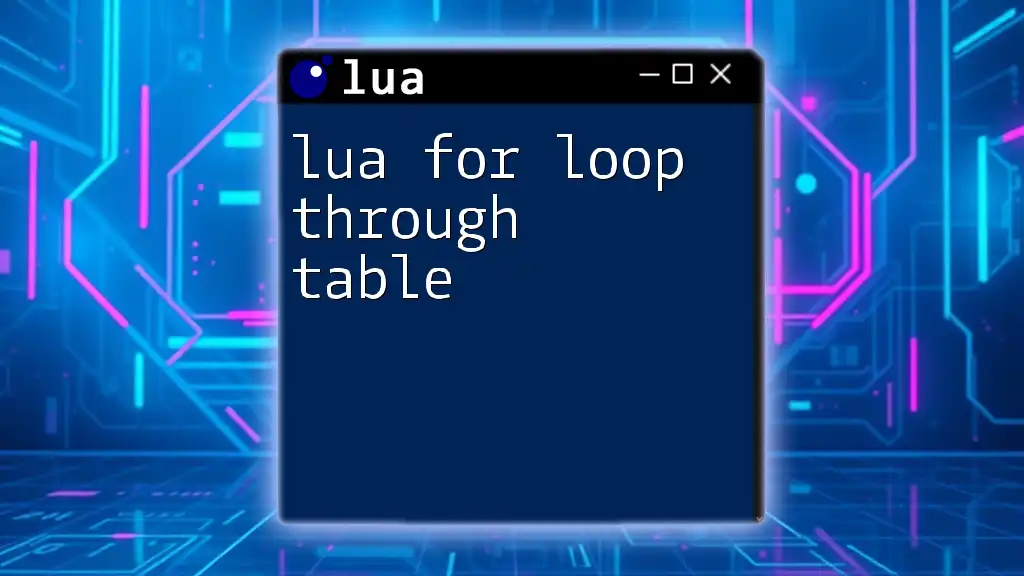
Error Handling in Lua
Error handling is essential for writing robust applications.
Introduction to Error Handling
Handling errors gracefully prevents your application from crashing unexpectedly. Lua provides mechanisms to manage errors effectively.
Using the pcall() Function
The `pcall()` function calls a function in protected mode, which captures any errors during execution.
local function riskyFunction()
error("An unexpected error!")
end
local status, err = pcall(riskyFunction)
if not status then
print("Error: " .. err)
end
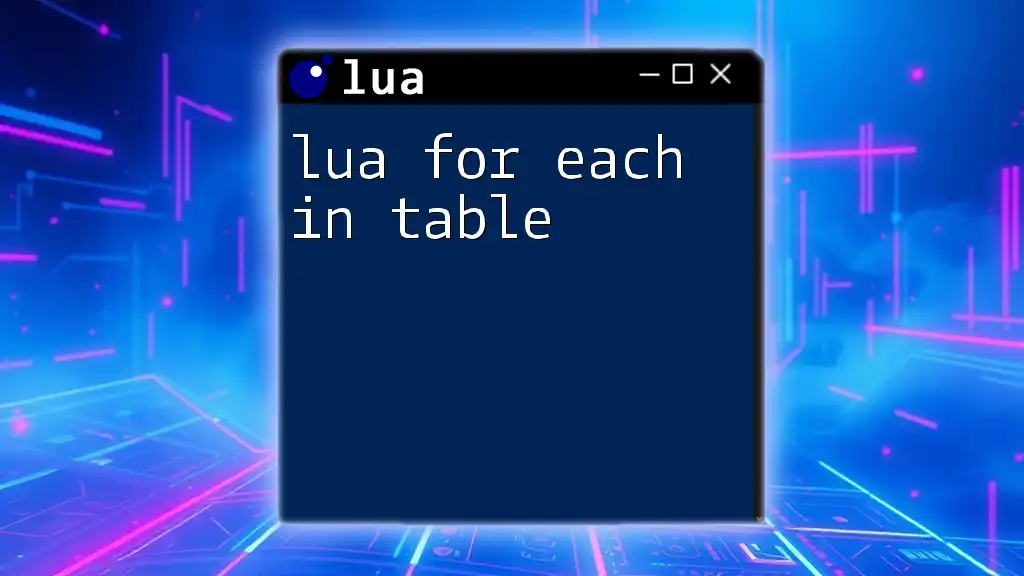
Working with Libraries
Lua has a plethora of standard libraries that enhance its functionality.
Standard Libraries in Lua
Some useful standard libraries include:
- string: For string manipulation functions.
- table: For table manipulation functions.
- math: For mathematical operations.
Example: Using the Math Library
You can access various mathematical functions using the `math` library:
local radius = 5
local area = math.pi * radius^2
print("Area of circle: " .. area)
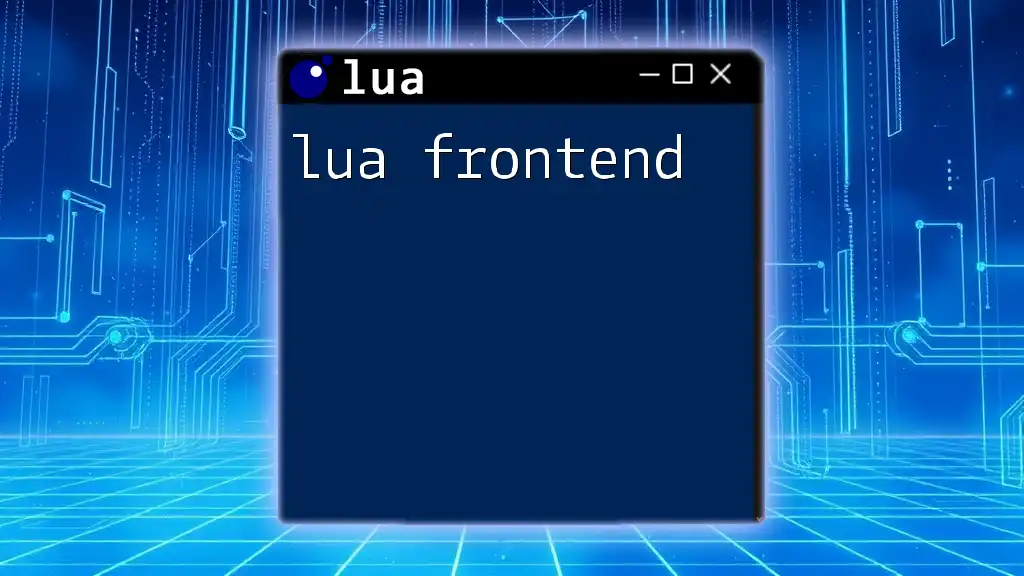
Practical Applications of Lua
Lua's versatility makes it applicable in various domains.
Game Development
One of the most popular uses for Lua is in game development. Its easy-to-embed nature allows game engines, like Roblox and Love2D, to leverage Lua for scripting game logic and behaviors.
Web Development
Lua also finds a place in web development through frameworks like Lapis and Sailor. These frameworks enable developers to build web applications quickly while utilizing Lua's lightweight architecture.
Scripting in Applications
Many applications, such as graphics and game applications, use Lua as an embedded scripting language. This allows users to customize their user experience or automate tasks efficiently.
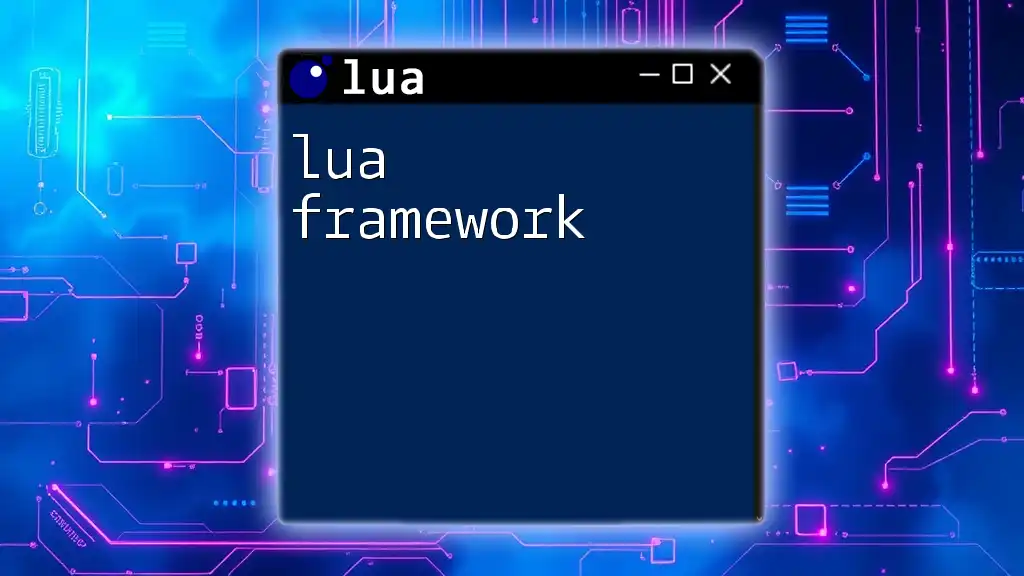
Best Practices in Lua Programming
Adhering to best practices can significantly improve the readability and maintainability of your code.
Writing Clean Code
- Use meaningful variable names that reflect their purpose.
- Indent your code consistently to improve its structure.
- Include comments to explain complex logic.
Optimization Techniques
Optimization is crucial for better performance:
- Minimize the creation of unnecessary tables and avoid using global variables excessively.
- Whenever possible, use local variables for improved speed.
For example, refactoring code to use local variables can make a significant performance difference:
local total = 0
for i = 1, 10000 do
local value = i * 2 -- Using local variable reduces lookup time
total = total + value
end
print("Total: " .. total)
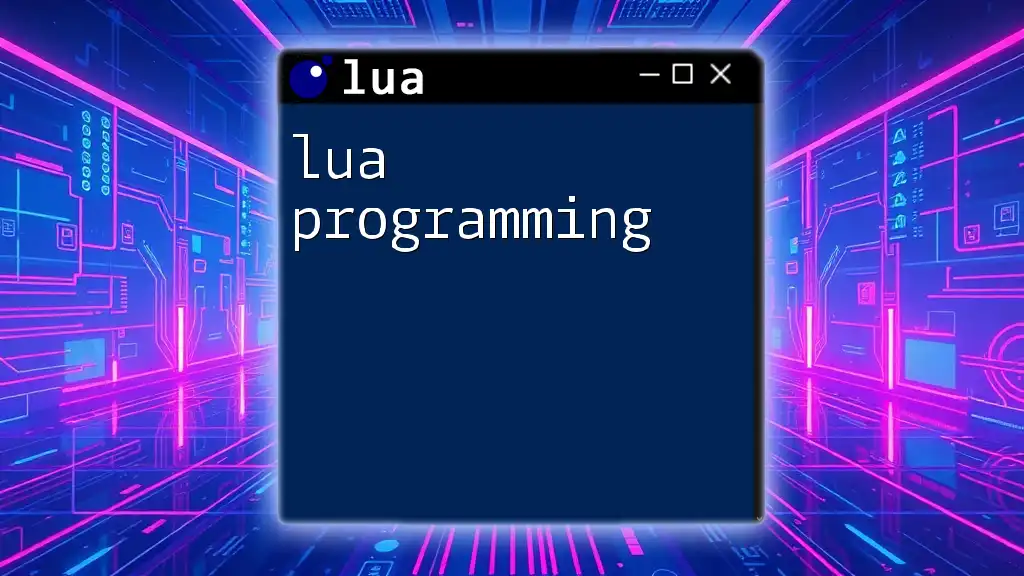
Conclusion
Throughout this guide, we've explored the fundamental concepts of Lua programming, focusing on its features, syntax, and practical applications. By understanding how to set up your environment, create functions, utilize tables, and handle errors, you are well on your way to becoming proficient in Lua.
Remember to practice regularly and engage with the Lua community. Whether you choose to develop games, web applications, or explore other domains, Lua is a powerful tool in your programming arsenal. Stay curious, keep coding, and enjoy your Lua journey!
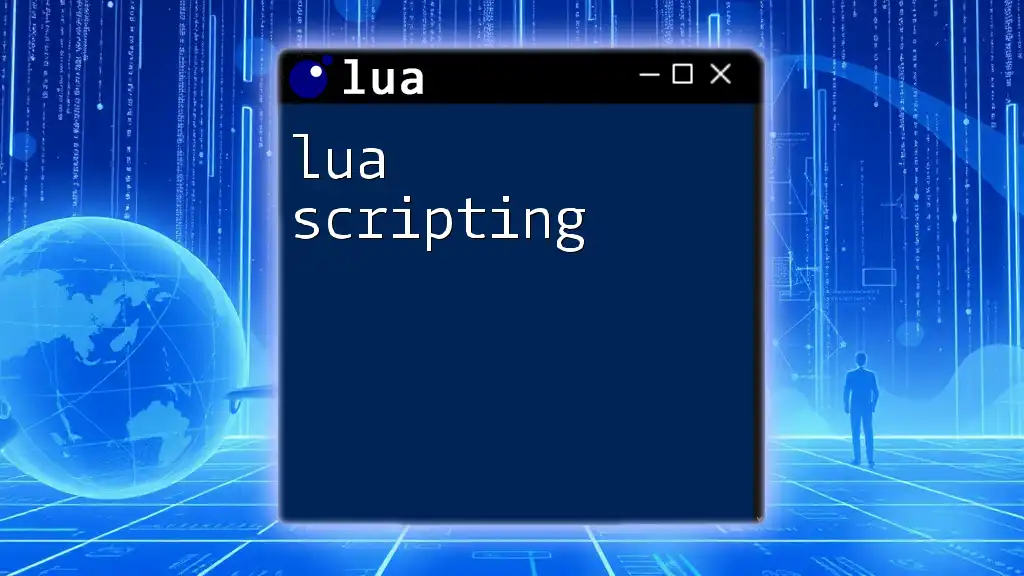
Additional Resources
To further your Lua knowledge, consider exploring resources like books, online courses, and forums specifically dedicated to Lua programming. Engaging with these resources will enhance your skills and connect you with other Lua enthusiasts who share your passion for programming.

